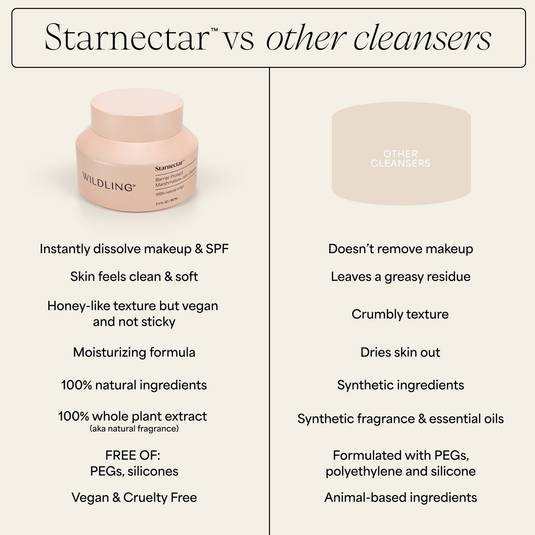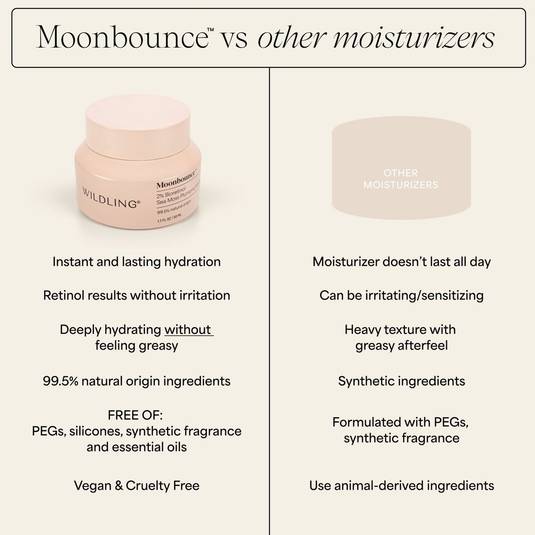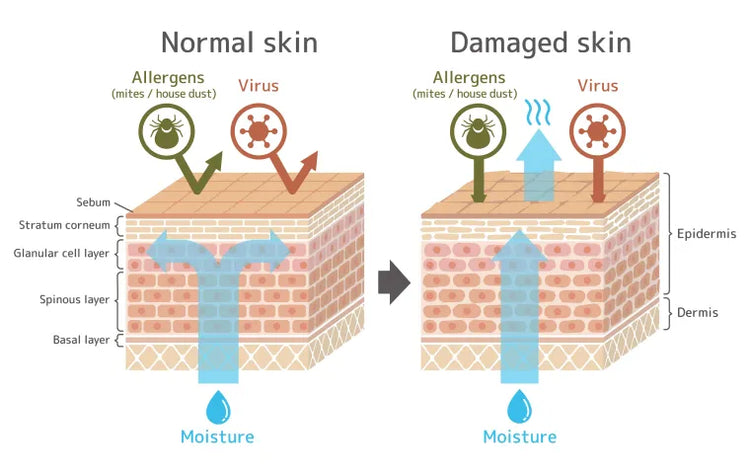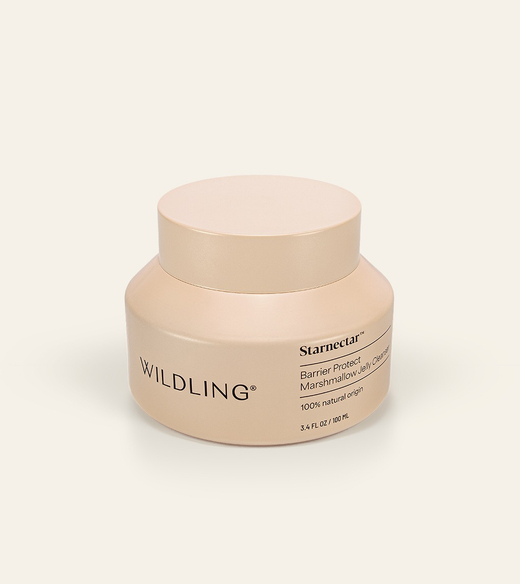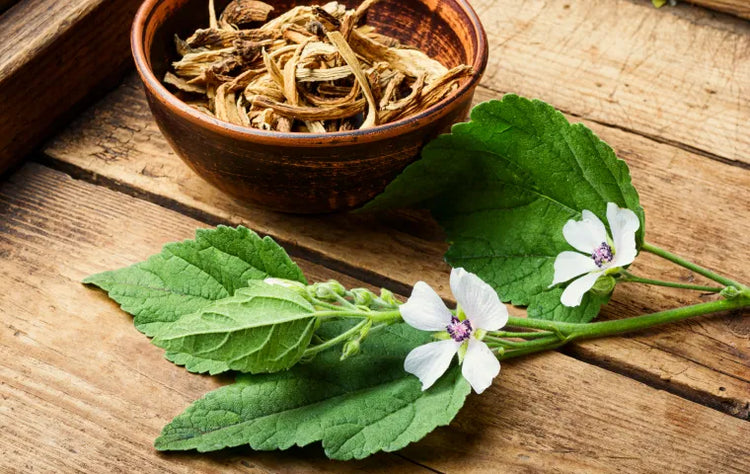Your skin is a remarkable organ that is in constant communication with the world around you — and your skin barrier is a crucial part of your overall skin health.
Our mission is to help you understand the essence of your skin barrier, recognize the signs of damage, and learn about the factors that can harm it. By embracing the power of plants, stones, and cosmic wisdom, we strive to create a holistic path that leads to vibrant, nourished skin. In this article, we'll guide you through a journey of addressing a damaged skin barrier, offering insights into the skin's barrier function and how to support it with your skincare regimen.
WHAT IS YOUR SKIN BARRIER AND WHAT DOES IT DO?
Your skin barrier is an integral part of your overall well-being. Understanding the role of the skin barrier, recognizing its needs, and learning how to nourish it can open the door to radiant and healthy skin.
The skin barrier is scientifically recognized as the stratum corneum, the outermost layer of the epidermis. It's composed of skin cells bonded together by lipids, ceramides, cholesterol, and fatty acids. Think of it as a wall composed of bricks and mortar, where cells and lipids hold everything together. This wall serves multiple purposes: it locks in essential moisture, blocks harmful bacteria, pollutants, and other external elements, and keeps everything working in harmony.
One of the essential functions of the skin barrier is regulating transepidermal water loss (TEWL). If you’re thinking, “trans-what?” we understand. Transdermal water loss refers to the amount of water that evaporates from inside the body through the epidermis to the surrounding atmosphere.
A strong, thriving skin barrier helps minimize TEWL, working to preserve the skin's natural moisture and maintain its suppleness.
WHAT ARE THE KEY SIGNS OF A DAMAGED SKIN BARRIER?
A weakened or damaged skin barrier is like a wall with crumbling bricks; it loses its strength and allows unwelcome guests to sneak through.
When the "mortar" of lipids and ceramides is disrupted, the skin loses its ability to retain moisture, leading to a dry and flaky appearance (and itchiness, too).
Breakouts and sensitivity can also occur when the skin barrier is compromised. The skin becomes more susceptible to infections and irritation as the natural defenses are weakened. Sensitivity often shows up as redness or a stinging sensation when products are applied.
Discoloration and more severe skin conditions can sometimes also signal a damaged skin barrier. These signs are a distress call from your skin, indicating a disconnection or misalignment. It's key to recognize these symptoms early and take appropriate steps to heal and strengthen the skin barrier.
WHAT CAUSES SKIN BARRIER DAMAGE?
The skin barrier, while resilient, is susceptible to damage from various sources. External aggressors like pollution, excess sun exposure, and harsh weather can strip away the natural oils and disrupt the skin's pH balance.
Over-exfoliation, using abrasive scrubs, or incorporating too many active ingredients in your skincare routine can weaken the protective layer, making it more susceptible to damage. What products interrupt your skin’s natural processes and lead to a compromised skin barrier can vary from person to person. If you have sensitive skin or are reactive to many different allergens, it may be easier for you to damage your skin barrier than others.
Even psychological factors such as stress can throw your skin’s delicate balance into chaos — stress releases hormones like cortisol, which can reduce the skin's ability to produce the natural oils required for a strong barrier.
Understanding the many causes of skin barrier damage is the first step in creating a skincare ritual that nurtures and protects your complexion. It involves a holistic approach that recognizes the interplay between lifestyle, environment, genetics, and skincare practices.
HOW TO REVIVE YOUR SKIN BARRIER
Now that we’ve talked about the basics, here’s an overview of what you can do to help revive a damaged skin barrier.
1. Simplify Your Skincare Routine
The first step is to simplify your skincare routine, especially if you're dealing with a damaged skin barrier. Over-complicating things can lead to more harm than good.
You may have spent a lot of time putting together twenty different products designed to address dry skin, for instance, rich in ingredients like hyaluronic acid, antioxidants, retinoids, and everything else you think you need for radiant skin … but if you’re overusing active ingredients or layering products incorrectly, even the best products can do more harm than good.
Because of this, the first step is to pare back your routine and start over with some basics. Leave out the stripping toners and complicated, do-not-combine ingredients — and reach for products that really work.
2. Start With a Cleanser
Cleansing is fundamental. Selecting a gentle cleanser and avoiding over-exfoliating is key. Find one rich in hydrating ingredients, including humectants, emollients, and occlusives.
Our Starnectar™ Barrier Protect Marshmallow Jelly Cleanser is a brightening and skin-softening blend infused with marshmallow root, licorice root, and orange peel that can help to get your skin barrier back on track.
It maintains hydration as it gently dissolves makeup and impurities. The warm, mildly sweet, woodsy scent derived from Tonka Bean Butter, Plum Kernel Oil, and Balsam Copaiba nourishes the skin barrier and protects from free radical damage, providing a calming and uplifting experience.
3. Apply a Nourishing Moisturizer
Moisturizing goes beyond just hydrating; it's about a strategic healing process and skin barrier repair. Preventing transepidermal water loss is vital, which means you need a moisturizer with staying power. At the same time, your moisturizer needs to truly deliver hydration to help your skin barrier recover.
Our Moonbounce™ 2% Bio Retinol Irish Sea Moss Plumping Moisturizer uses a proprietary complex that minimizes wrinkles and fine lines and firms skin without irritation. With bio retinol and Irish Sea Moss, it delivers deep hydration to soothe and plump tired skin, offering a gentle plant-based alternative to traditional retinol.
Applying the Moonbounce™ 2% Bioretinol Irish Sea Moss Plumping Moisturizer freshly to cleansed skin is a luxurious ritual. The Reflexology Spoon, a multi-purpose tool designed by our founders, ensures that you scoop moisturizer without contamination and work it into the skin with the rounded reflexology tip. It's a perfect balance of functionality and spiritual connection.
4. Protect Your Skin From the Sun
Finally, Protecting your skin is essential. Wearing a high-SPF sunscreen not only guards you against harmful UV rays, but also preserves the balance and beauty of the skin's natural barrier. It's a final step that seals in the goodness of your carefully-selected products.
BRINGING HARMONY TO YOUR SKIN
Your skin barrier is a key part of your overall skin health — and when this barrier is in harmony, it will show.
From environmental stressors to improper skincare, a variety of factors can leave your skin barrier compromised and unhappy. But with the right tools and rituals, you can restore your skin’s barrier to its former glory.
Sources:
Skin Barrier Function | National Library of Medicine
Sunscreen: How to Help Protect Your Skin from the Sun | Food and Drug Administration
Your skin barrier is a key part of your overall skin health — and when this barrier is in harmony, it will show.
